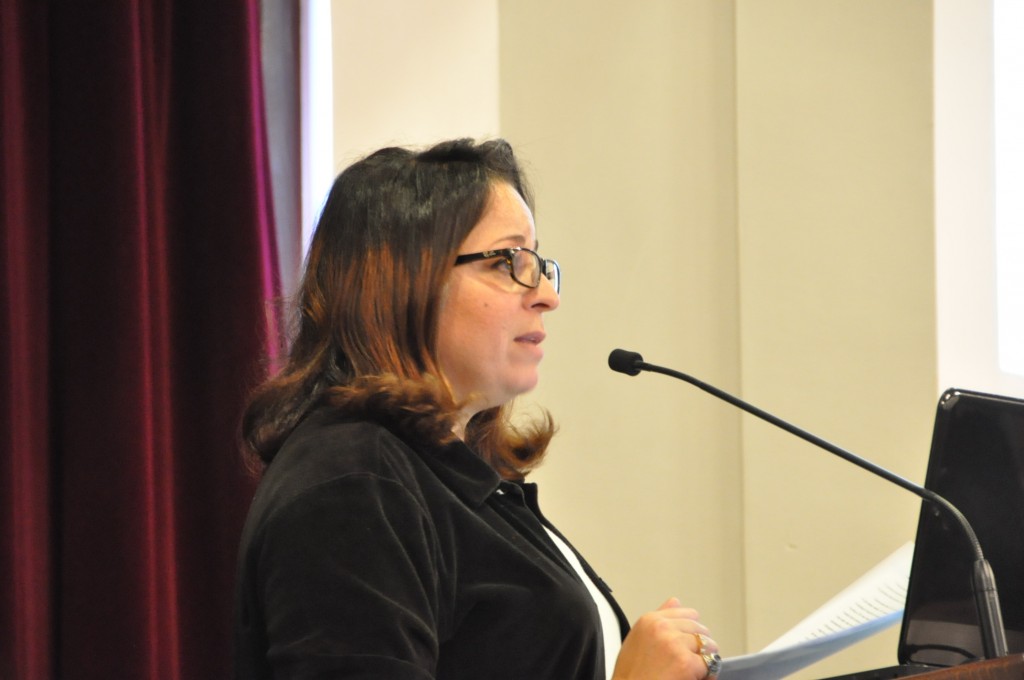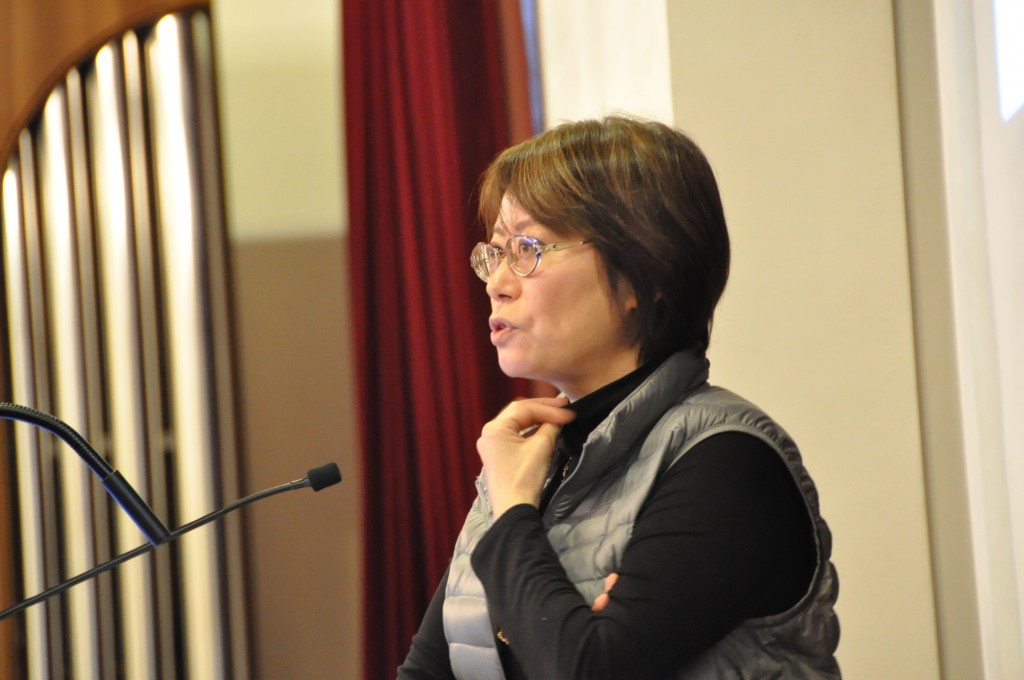Center for Interdisciplinary Study of Monotheistic Religions(CISMOR)Doshisha University
> Public Lectures > Stubborn Female Identities: Stories, Narratives, and the Wagers of Political change in Pre and Post-Revolution EgyptPublic Lectures
Stubborn Female Identities: Stories, Narratives, and the Wagers of Political change in Pre and Post-Revolution Egypt
| Date: |
2015/02/14 13:00-15:10 |
|---|---|
| Place: | Clarke Memorial Hall Chapel, Imadegawa Campus, Doshisha University |
| Lecture: |
Dr.Lobna Ismail(Associate Professor of English Department at Cairo University) 【Commentator】 Mari Oka(Graduate School of Human and Environmental Studies, Kyoto University) |
| Summary: | |
|
Dr. Ismail argued that while many women participated in Egypt’s January revolution, afterwards they were attacked in public places, people tried to invalidate their acquired rights, and women’s votes were altered during elections. The mass media criticized these actions and efforts led by diverse, artistically talented women for the political and societal participation of women have flourished. Two major historical events involving Egyptian women were the loss of the Egyptian renaissance and their movement to Gulf States. Due to economic stagnation and political corruption in Egypt, many Egyptian women went to oil-producing countries, and subsequently returned after having acquired conservative Muslim traditions. The loss of the Egyptian renaissance occurred in the 19th and 20th centuries. In 1899, the aristocrat Qasim Amin asserted that education and equality was a fundamental right of women, and exerted considerable influence on the aristocratic, upper, and middle classes. In the 1920s to 1940s, women activists and authors appeared. Doria Shafik established the “Arab Women’s Liberation Movement” and organized demonstrations, stormed parliament, and went on hunger strikes for women’s voting rights. However, following the 1952 revolution and Nasser taking power, women’s issues were no longer emphasized. In Egypt, women’s rights are influenced by politics (particularly dictatorships). While women’s rights activities of the past have been ignored, there are women artists and authors working to put them in the limelight of history. While the environment surrounding women did not change after the recent revolution, one of the accomplishments is women now expressing themselves and stating their opinions without fear. Dr. Ismail concluded by saying that a cultural, not political, revolution was necessary (particularly with regard to women’s education). Prof. Oka then presented her comments on Ismail’s lecture. France and Britain maintained colonial relationships with Egypt in the mid-19th century. Revolutions took place in 1882, 1919, and 1952 to seek independence, and in 2011, a revolution occurred with the goal of toppling a dictatorship. In Latifa al-Zayyat’s novels, the liberation of women oppressed in patriarchal society overlaps with the liberation of their Egyptian homeland, which has had its ethnic independence deprived by Britain’s military colonial rule. Such depictions are found not only in Egypt, but also in the Moroccan works of Leila Abouzeid and Fatima Mernissi, the Palestinian works of the woman Nadya Khalife, and Michel Khleifi. However, while Japanese readers notice the women’s liberation elements of these depictions, they only see national liberation in the background. This is likely due to Japan’s historical experience as a colonial ruler that dictates how people read these texts. Nawal El Saadawi writes from a socialist perspective on class oppression and issues relating to subaltern women. She exposes the exploitation of the latter, in which elite women use them as informants so they can have societal power. Alifa Rifaat, who has only received an elementary school education, depicts normal Egyptian women like herself, showing how they live in an Islam society. In closing, Prof. Oka noted that a theme of Ismail’s lecture was “homeland,” or watan in Arabic. Due to the 1952 revolution, Egypt was freed from colonial rule. However, a dictatorship then continued to hold power and Egyptians’ watan was not their own. The liberation of one’s watan is not just liberation from a foreign country’s rule. Women’s rights are not equally recognized by society, and the liberation is not complete; women will continue to fight. There was lively dialogue in response to participant questions. Tomoki Asaka Postdoctral Fellow, CISMOR |
|
|
*Admission Free, No Reservation Necessary. *Lecture in English, Interpretation will be provided. |
|

